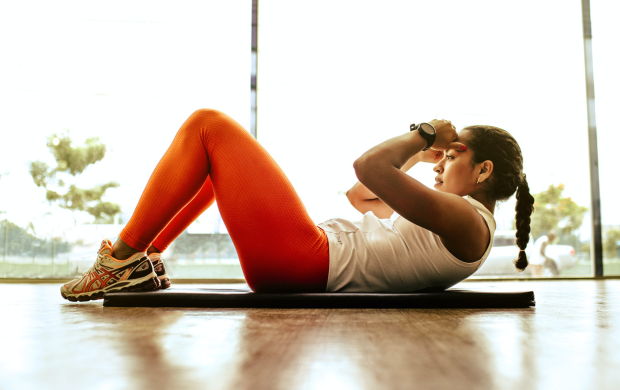How do you achieve peak performance in the gym? Of course, how hard you train will help, but how smart you train can also help. If you want to enhance your fitness and recovery, you should keep in mind that it requires a balanced approach that encompasses training techniques, nutrition, and rest.
Ready to learn more? If so, here are some key tips to help you boost your performance and recovery and ensure you get the most out of your gym sessions.
Setting Clear Goals
One of the first steps to improving your performance is to set clear, achievable goals. Whether you want to build muscle, lose weight, or increase endurance, having specific targets will guide your training regimen. Write down your goals and break them into smaller, manageable milestones. This approach keeps you focused and allows you to track your progress and stay motivated.
Perfecting Your Form
Proper form is crucial in preventing injuries and maximising the effectiveness of your workouts. Take the time to learn the correct techniques for each exercise. If you’re unsure, consider working with a personal trainer or watching instructional videos.
Remember, it’s better to lift lighter weights with perfect form than heavier weights with poor form. Consistently practising good form will lead to better results and reduce the risk of setbacks.
Listening to Your Body
Your body communicates with you through signals like soreness, fatigue, and pain. As such, you should listen to these signals to avoid overtraining and injuries. If you’re feeling unusually tired or experiencing persistent pain, it might be time to take a break or seek advice from a healthcare professional.
However, pushing through pain can lead to serious injuries and long-term setbacks. Instead, consider warm-up exercises and treatments such as a gym CBD set from HEMPE to help with exercise recovery. CBD gels for sports enthusiasts can be a great way to reduce pain from exercise-related injuries and can be a good natural remedy alternative to taking medication.
Incorporating Variety into Your Workouts
Doing the same routine repeatedly can lead to plateaus and boredom. If you want to keep your body challenged and engaged, incorporate variety into your workouts. Mix up your exercises, try different equipment, and switch between high-intensity interval training (HIIT), strength training, and cardio. Doing so keeps your workouts interesting and ensures that you are working all your muscle groups, promoting balanced fitness development.
Prioritising Nutrition
Your diet plays a significant role in your performance and recovery. To fuel your workouts, ensure you’re consuming a balanced diet rich in proteins, carbohydrates, and healthy fats. Proteins aid in muscle repair and growth, carbohydrate-rich foods provide energy, and fats support overall health. Don’t forget to stay hydrated, as water is essential for maintaining energy levels and preventing dehydration.
Pre-Workout Nutrition
Before you hit the gym, eat a meal or snack that includes both protein and carbohydrates. This combination provides the energy needed for a vigorous workout and the amino acids required for muscle maintenance. Aim to eat 1-3 hours before exercising, allowing your body time to digest and absorb the nutrients.
Post-Workout Nutrition
Post-workout nutrition is equally important for recovery. Consuming a meal or snack high in protein and carbohydrates within 30 minutes to an hour after your workout helps replenish glycogen stores and repair muscle tissue. Consider options like a protein shake with a banana, chicken with sweet potatoes, or a yoghurt with berries.
Getting Adequate Rest
Rest and recovery are just as important as your training sessions. Without adequate rest, your muscles won’t have the time they need to repair and grow, leading to overtraining and potential injuries. Ensure you’re getting enough sleep each night—7-9 hours is recommended for most adults. Additionally, incorporate rest days into your weekly routine to allow your body to recover fully.
Active Recovery
Active recovery involves engaging in low-intensity activities on rest days. These could include walking, stretching, yoga, or light cycling. Active recovery promotes blood flow to muscles, helping to reduce soreness and improve flexibility without putting additional strain on the body.
Supplementing Wisely
While a balanced diet is the best way to get the nutrients you need, supplements can sometimes be beneficial. Consider supplements like high-quality protein powders, BCAAs (branched-chain amino acids), creatine, and vitamins if you have specific dietary gaps or increased nutritional needs.
However, always consult with a healthcare provider before starting any new supplement regimen to ensure it’s safe and appropriate for you.
Staying Consistent
Consistency is key to seeing results in the gym. Commit to a regular workout schedule that fits your lifestyle and stick to it. Even on days when motivation is low, showing up and putting in the effort will contribute to long-term success. Ultimately, fitness is a marathon, not a sprint, and staying consistent will yield the best results over time.
Following these tips can significantly improve your gym performance and enhance your recovery. Setting clear goals, maintaining proper form, varying your workouts, prioritising nutrition, getting adequate rest, monitoring progress, listening to your body, supplementing wisely, and staying consistent are all critical components of a successful fitness journey.
At the end of the day, embrace these strategies and watch your fitness levels soar!








